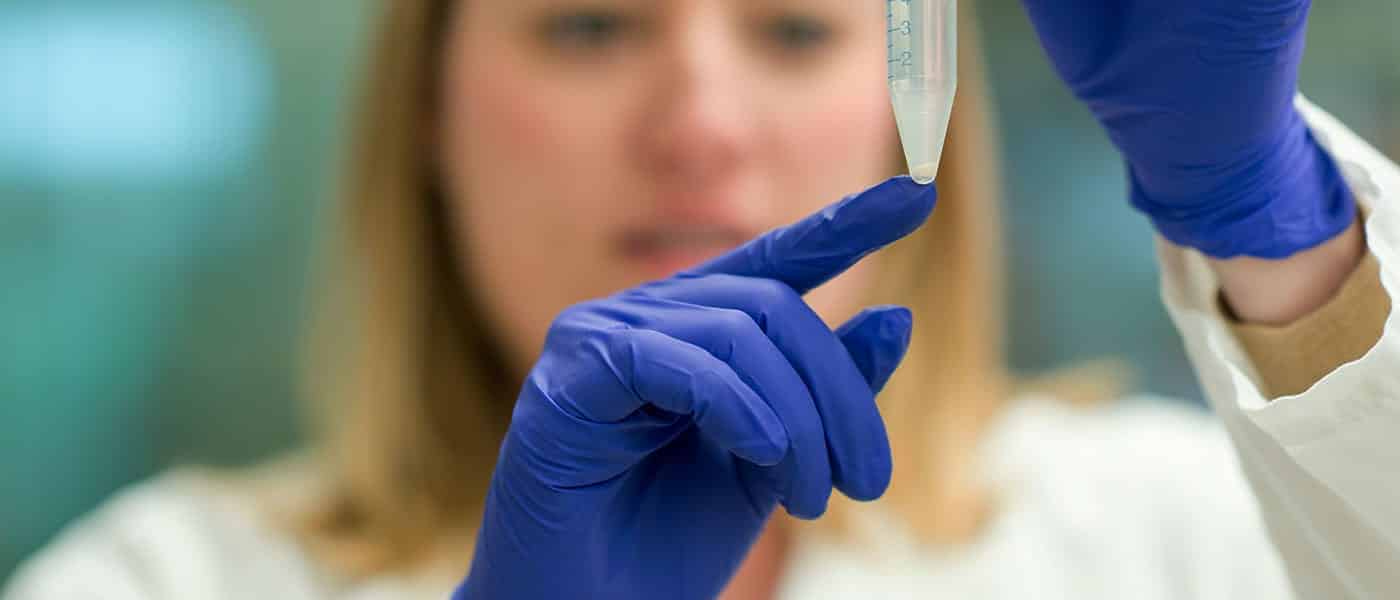Partnerships built on a shared vision
As an independent institute, Morgridge can move quickly and follow interesting and important biological questions, wherever they may lead.
Yet we have the best of two worlds. We are deeply engaged with one of the world’s preeminent public research universities and work strategically with the biomedical research community at UW–Madison.
Our benefactors, John and Tashia Morgridge, were farsighted and expressly built into our endowment a component that allows us to invest in new initiatives. We evaluate and choose new ideas that reflect shared priorities with the university.
This effort has led to thriving campus partnerships in metabolism research, cryo-EM and mass spec technologies, research computing and stem cell science, among others.
We also exist in a unique culture. The Wisconsin way of doing things is different from many other places, where policy and direction are often determined top-down. People here build coalitions to get new ideas off the ground, which results in strong, grassroots support.
We think this approach unleashes the best ideas to advance human health.
By the Numbers
50+
New research ventures launched between Morgridge postdocs and UW–Madison investigators since 2015
500+
Number of campus scientists who belong to the Morgridge Metabolism Initiative, a collaborative hub for metabolism researchers since 2015
82
Number of academic departments and programs that have employed high-throughput computing in their research since 2017
30,000+
Number of Wisconsin K12 students who have participated in science field trips at Discovery since 2011
36
Number of UW–Madison scientists who have employed the Cancer Metabolomics and Proteomics (CAMP) resource, led by Joshua Coon, in their research
$5.7 million
Investment from the Morgridge Strategic Fund in scientific technology deemed a high priority at UW–Madison, such as electron tomography, mass spectrometers and cryo-EM microscopes since 2014
500+
Number of UW–Madison faculty who have participated in public science programs through Discovery Connections since 2011
Partnership Stories

Mass spec fueling new explorations at the Carbone Cancer Center
Every cell has about 20,000 proteins, several hundred metabolites, and couple of thousand lipids. When those things get perturbed, bad things can happen. But measuring those changes may offer essential clues for fighting cancer.
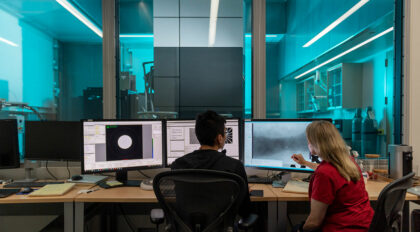
From ‘blobology’ to atomic precision: Wisconsin’s leadership on cryo-EM imaging
Wisconsin is now an established national leader in cryo-electron microscopy, or cryo-EM, thanks to a decade-long strategic push from the UW–Madison biochemistry department and the Morgridge Institute.
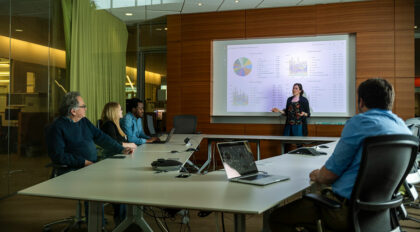
High-throughput computing: Fostering data science without limits
HTCondor is gaining adherents across UW because scientists are learning that it is more than someone asking, “What technology do you need?” Research computing is a collaboration, and the people HTC brings to the equation are more important than the technology.
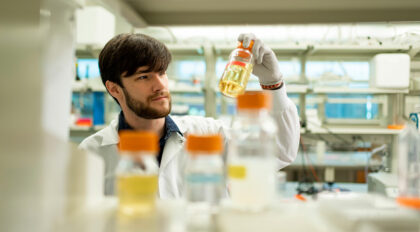
The Morgridge Metabolism Initiative: A blueprint for collaboration
The Morgridge Metabolism Initiative helps hundreds of campus scientists learn from each other and push the boundaries of research that is central to human health questions such as aging, diabetes and cancer.

Developing the science of science communication
The Morgridge Institute and UW–Madison Life Sciences Communication will join forces to investigate new ways to best communicate complex scientific topics to society.

Training the next generation of science leaders at Morgridge
Scientific training is much more than learning experimental methods or interpreting data. Trainees must practice management, leadership, collaboration, and communication skills to be successful and the Morgridge Institute is committed to fostering growth of “whole scientists" who are prepared to lead.
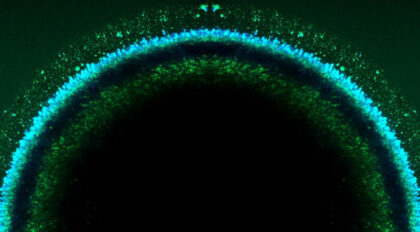
A research partnership brings gene editing promise to eye disease
One of the first frontiers of CRISPR gene editing is targeting diseases related to the eye. A diverse Morgridge and UW–Madison team is working to make future applications precise, safe and reproducible.

Hunting viral variants across Wisconsin, powered by high-throughput computing
When dangerous COVID viral variants were sweeping the globe, David O'Connor was busy tracking their spread in Wisconsin. His secret weapon? High-throughput computing.
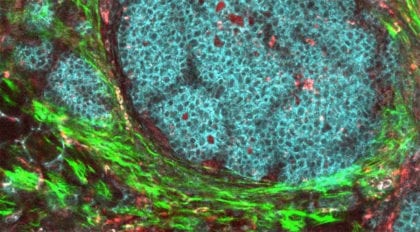
Building a better bioimaging community: Chan Zuckerberg Initiative supports international partnership
Investigator Kevin Eliceiri leads a grant with BioImaging North America, which was recently awarded $1.2 million in funding from the Chan Zuckerberg Initiative.

National Science Foundation establishes a partnership to advance throughput computing
Morgridge and UW–Madison are partners on a $22.5 million project from the National Science Foundation to advance high-throughput computing technology and promote usage nationwide.
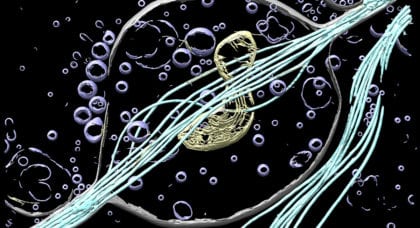
New national imaging center has potential to transform medicine
A national research initiative announced today will place the University of Wisconsin–Madison at the forefront of a revolution in imaging fostered by cryo-electron microscopy and cryo-electron tomography.
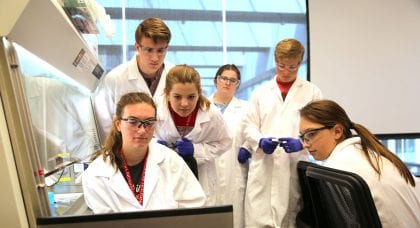
Rural Summer Science Camp expands opportunities, curriculum in its 13th year
The Morgridge Rural Summer Science Camp, where rural high school students and teachers take a deep dive into science research over the course of a week, is expanding and offering a third week of camp thanks to new support from a National Science Foundation (NSF) project.
